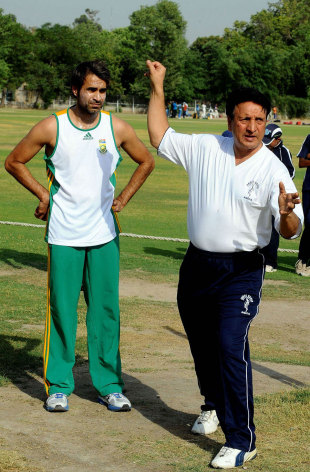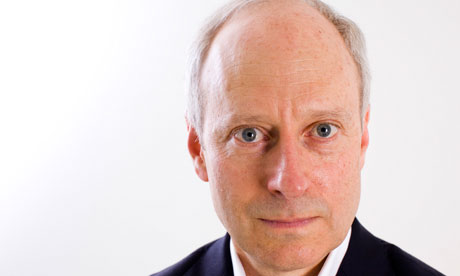The shareholder spring is the perfect time to challenge the poor performance of unscrutinised accountancy firms

'KPMG, PricewaterhouseCoopers, Deloitte
and Ernst & Young, collectively known as the Big Four accountancy
firms, audit around 99% of FTSE 100 companies.' Photograph: Action Press
/ Rex Features
Shareholder spring
is in the air, with increasing numbers voting against fat-cat executive
rewards for failure and mediocre performance. However, the same
scrutiny is not being applied to the business advisers and consultants
implicated in headline failures. They continue to receive huge financial
rewards. Company auditors are good example.
PricewaterhouseCoopers (PwC), Deloitte, KPMG and Ernst & Young, collectively known as the Big Four accountancy firms, audit around 99% of FTSE 100 companies. These firms audited all distressed banks. At the height of the banking crisis they gave the customary clean bill of health to Northern Rock, Abbey National, Alliance and Leicester, Bradford & Bingley, HBOS, Lloyds TSB and Royal Bank of Scotland (RBS). Bear Stearns and Lehman Brothers went bust shortly after receiving the all-clear. A subsequent inquiry by the House of Lords economic affairs committee accused auditors of "dereliction of duty" (para 161) and "complacency" (para 167) and basking in a culture of "box ticking" (para 6) rather than delivering meaningful audits. Despite the damning criticisms, some partners in audit firms still charge over £700 an hour for their services.
In 2011, Barclays, the bank that forced the government to introduce retrospective legislation to combat its tax avoidance schemes, paid £54m to its auditors PricewaterhouseCoopers, including £15m for consultancy and advice on tax matters. PricewaterhouseCoopers, which once audited Northern Rock, collected another £48m from Lloyds Banking Group , including £10m for consultancy. HSBC has paid a whopping £56m, including about £8m for tax and consultancy services to its auditors KPMG, the firm that audited HBOS and Bradford & Bingley. RBS has paid £41m, including £7.4m for consultancy to Deloitte, the firm that audited Abbey National, Alliance & Leicester and Bear Stearns. Ernst & Young, the firm that audited Lehman Brothers, earned £36m in audit and consultancy fees from BP and another £28.5m from Aviva. At major companies, the fees paid to accountancy firms are larger than CEO salaries, but rarely attract sustained media attention. The auditor dependency on companies for vast fees neuters any impulse to deliver an independent opinion on company accounts. No one at any accountancy firm is ever promoted for blowing the whistle on dubious practices of companies and losing a client.
At company AGMs auditors are appointed often without any discussion. The resolutions on auditor appointment are not accompanied by any information on the composition of the audit teams; time spent on the job, audit and consultancy contracts, information obtained from directors, list of faults found with company accounts, regulatory action against auditors or anything else that might shed light on the quality of audit work or conflict of interests. With weak accountability measures, auditors deliver little of any social value.
The charges of "dereliction of duty" and "complacency" have not led to any worthwhile UK reforms though there is plenty of spin about encouraging auditors to be sceptical and tweaking auditing standards. There is no scrutiny of the basic auditing model which requires entrepreneurial accountancy firms to somehow invigilate giant corporations. The success of auditors is measured by private profits and they have no obligations to the state, or the public, which eventually bears the cost of bailouts and fraud. This mutual back-scratching has been a key factor in the debacles at Enron, WorldCom, Lehman Brothers and the banking crash. Yet no real change is in sight.
The EU is proposing minimalist reforms to check the collusive relationship between auditors and companies. These include a ban on the sale of lucrative consultancy services to audit clients and forcing companies to regularly change their auditors. At present, FTSE 100 companies change auditors every 48 years on average. Inevitably, major firms are using their financial and political resources to oppose even these modest proposals.
Major accountancy firms have got used to collecting mega fees for failure and mediocre performance. Shareholders should check that by turning the spotlight on them and demand refunds for poor performance. The government should sharpen liability laws so that auditors are forced to make good the damage done by their silence.
PricewaterhouseCoopers (PwC), Deloitte, KPMG and Ernst & Young, collectively known as the Big Four accountancy firms, audit around 99% of FTSE 100 companies. These firms audited all distressed banks. At the height of the banking crisis they gave the customary clean bill of health to Northern Rock, Abbey National, Alliance and Leicester, Bradford & Bingley, HBOS, Lloyds TSB and Royal Bank of Scotland (RBS). Bear Stearns and Lehman Brothers went bust shortly after receiving the all-clear. A subsequent inquiry by the House of Lords economic affairs committee accused auditors of "dereliction of duty" (para 161) and "complacency" (para 167) and basking in a culture of "box ticking" (para 6) rather than delivering meaningful audits. Despite the damning criticisms, some partners in audit firms still charge over £700 an hour for their services.
In 2011, Barclays, the bank that forced the government to introduce retrospective legislation to combat its tax avoidance schemes, paid £54m to its auditors PricewaterhouseCoopers, including £15m for consultancy and advice on tax matters. PricewaterhouseCoopers, which once audited Northern Rock, collected another £48m from Lloyds Banking Group , including £10m for consultancy. HSBC has paid a whopping £56m, including about £8m for tax and consultancy services to its auditors KPMG, the firm that audited HBOS and Bradford & Bingley. RBS has paid £41m, including £7.4m for consultancy to Deloitte, the firm that audited Abbey National, Alliance & Leicester and Bear Stearns. Ernst & Young, the firm that audited Lehman Brothers, earned £36m in audit and consultancy fees from BP and another £28.5m from Aviva. At major companies, the fees paid to accountancy firms are larger than CEO salaries, but rarely attract sustained media attention. The auditor dependency on companies for vast fees neuters any impulse to deliver an independent opinion on company accounts. No one at any accountancy firm is ever promoted for blowing the whistle on dubious practices of companies and losing a client.
At company AGMs auditors are appointed often without any discussion. The resolutions on auditor appointment are not accompanied by any information on the composition of the audit teams; time spent on the job, audit and consultancy contracts, information obtained from directors, list of faults found with company accounts, regulatory action against auditors or anything else that might shed light on the quality of audit work or conflict of interests. With weak accountability measures, auditors deliver little of any social value.
The charges of "dereliction of duty" and "complacency" have not led to any worthwhile UK reforms though there is plenty of spin about encouraging auditors to be sceptical and tweaking auditing standards. There is no scrutiny of the basic auditing model which requires entrepreneurial accountancy firms to somehow invigilate giant corporations. The success of auditors is measured by private profits and they have no obligations to the state, or the public, which eventually bears the cost of bailouts and fraud. This mutual back-scratching has been a key factor in the debacles at Enron, WorldCom, Lehman Brothers and the banking crash. Yet no real change is in sight.
The EU is proposing minimalist reforms to check the collusive relationship between auditors and companies. These include a ban on the sale of lucrative consultancy services to audit clients and forcing companies to regularly change their auditors. At present, FTSE 100 companies change auditors every 48 years on average. Inevitably, major firms are using their financial and political resources to oppose even these modest proposals.
Major accountancy firms have got used to collecting mega fees for failure and mediocre performance. Shareholders should check that by turning the spotlight on them and demand refunds for poor performance. The government should sharpen liability laws so that auditors are forced to make good the damage done by their silence.






